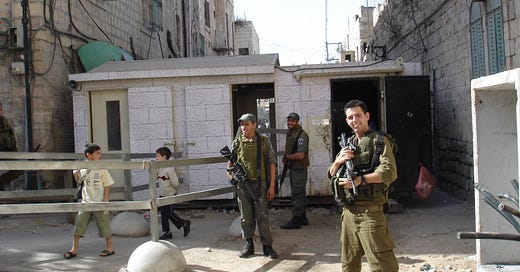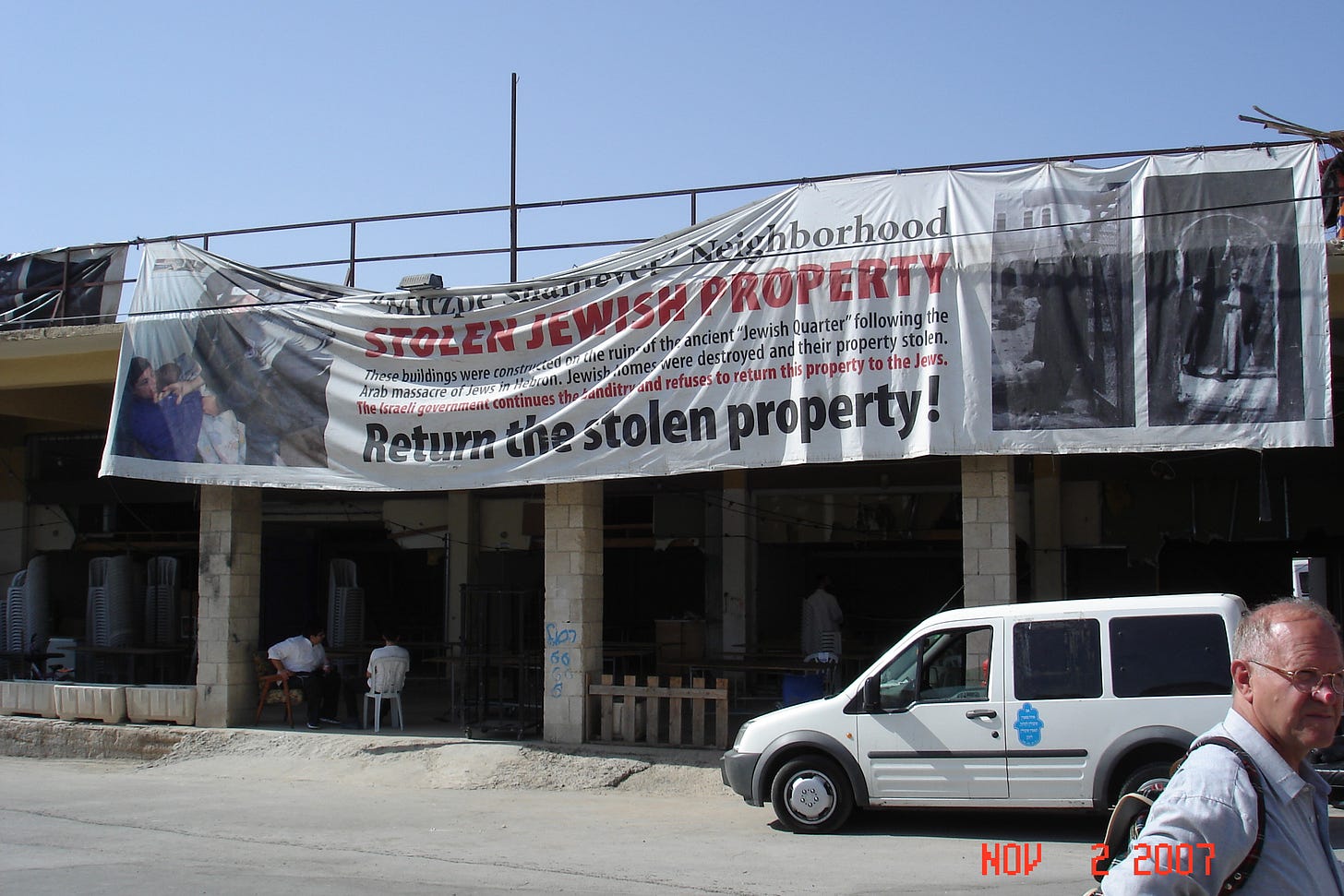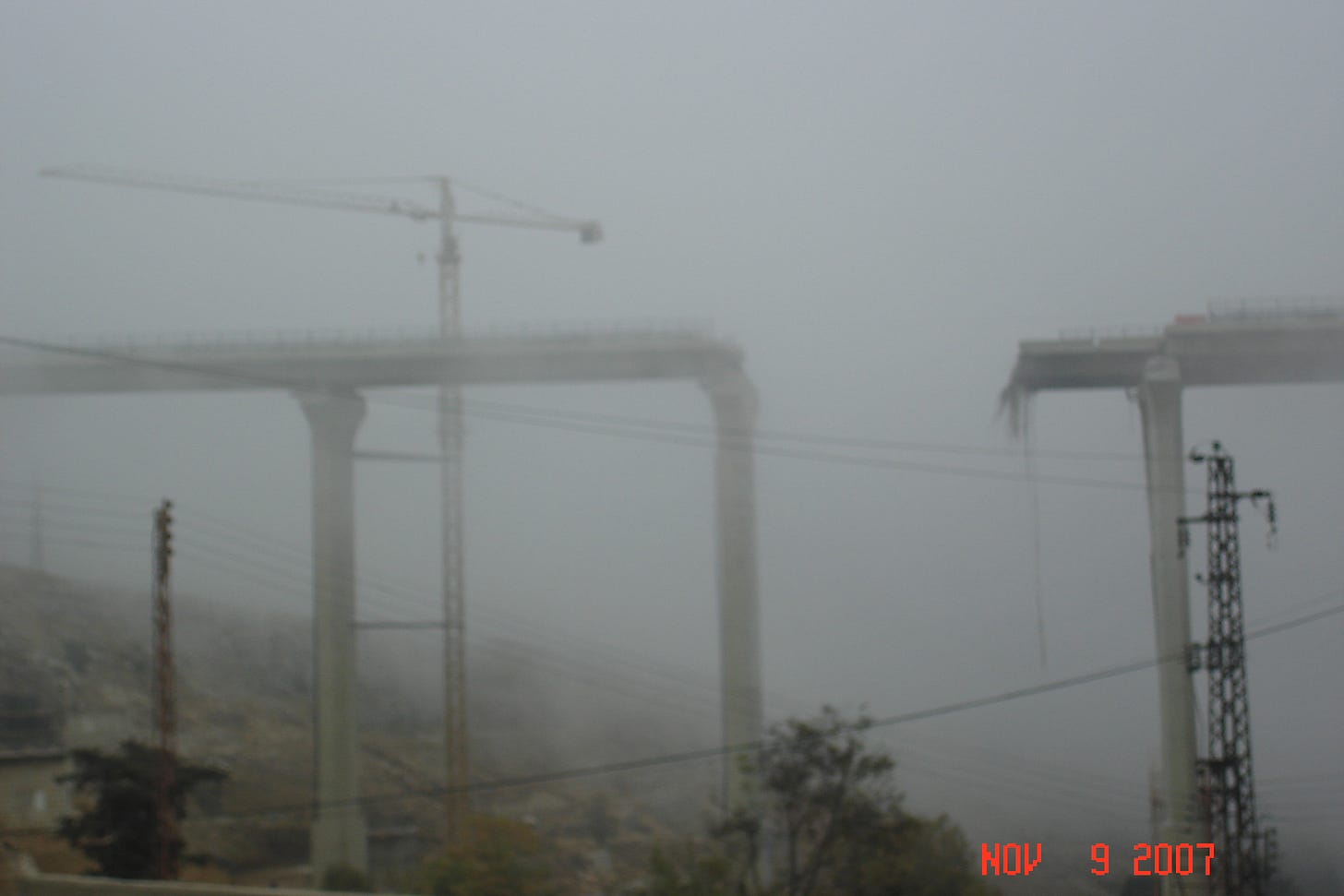Turbulent Winds of the Last Peace Conference - Annapolis
A Voyage Through Middle East Capitals Reveals the Truths that Lack Exposure
For those interested, here is a previous article on a significant past event that gives a background to contemporary events. George W. Bush organized the Annapolis peace conference; predictions had it going nowhere and the last ”peace conference” went nowhere. While U.S. administrations warned Israel not to expand settlements, claimed they favored a two-state solution, and acted as the principal mediator in the crisis, Israel continued to expand settlements, made certain the Palestinians could never have a viable state, and eschewed all mediations. The day that the Annapolis conference failed is the day the Western world failed the Palestinians and the moment that inexorably led to the present destruction of the Palestinian people.
Discussing the 2008 Annapolis Conference, in face-to-face talks with the prime ministers, foreign ministers, and non-government officials (NGOs) of Israel, Palestinian Authority, Jordan, Syria, and Lebanon, revealed how far we are from achieving peace in the Middle East,
and how far Annapolis is from the Earth that others walk upon. As part of a delegation of six intrepid fact finders, supported by the Council for the National Interest (CNI), a Washington-based NGO that labors intensively to determine paths towards Middle East peace, I found a hopeful wind that moved Israelis and Palestinians to portray optimism. This hopeful wind slowly reduced in force in Jordan, quickly diminished when meeting Syrian vice-presidents, and turned to an ill wind in meetings with the then Lebanese president, prime minister, and foreign minister.
The search for Middle East peace started on a discordant note at a meeting with Gush Shalom (peace bloc) spokesperson Uri Avnery, the most notable advocate for a just peace with the Palestinians. Uri used the words "unsure" and "window dressing" to describe the conference. He didn't sense that Hamas, with whom he has close contacts, would agree to a piece of paper and voiced the opinion that Hamas would "only make a truce and not a peace pact."
Kadima's Knesset member Amira Dotan spoke of "Annapolis as a symbol," with its "success defined as starting a process." Deputy Speaker Dr. Ahmed Tibi said: "The U.S. should create the conditions for making it a success. Its failure will strengthen Hamas, Hezbollah, and the Iranian/Syrian axis." Other official sources were more open; expressing views that Israel is an army that has a state and Defense Minister Barak is the major culprit in preventing any peace initiative.
The Ramallah landscape of enormous white brick housing developments against the brown dirt background disguises the actual despondency and poverty of the Palestinian people. Palestinian Authority (PA) officials, especially Foreign Minister Riad al-Maliki, tried to be optimistic about the Annapolis conference. Prime Minister Salam Fayed's words were more cautious. "We want a complete agenda with final talks, but have become more motivated by fear of failure than promises of success, and are being forced into unwanted compromises just to justify a meeting." President Abbas' Chief of Staff Rafiq Husseini insisted that Israel must move the separation wall to the Green Line. Interior Minister Abdel Razzah al-Yahya reiterated that "there will be no two-state solution if Israel does not withdraw to the 1967 boundaries and does not give the Palestinians oxygen to breathe."
The lack of oxygen stifles the Palestinians, who are already torn by internecine warfare between Fatah and Hamas and by conflict with organizations in Nablus that are a combination of criminals, protesters against social and economic negligence, and militants against Israel’s occupation. The Palestinian Authority is powerless and it is not obvious how it can negotiate anything and receive approval from a majority of Palestinians, especially when they continue to experience Israel's brutal occupation of the West Bank.
Illegal settlements have destroyed Palestinian life in central Hebron. When the Israeli military attempted to evict the settlers, the settlers broke windows and ruined the Palestinian shops. For an incomprehensible reason, the settlers have returned to their illegal positions and Palestinian shops and houses are now empty. To enforce the settler presence, Israeli security checkpoints have been installed at all former entrances to the market.
These settlers claim properties "taken" from Jews during riots against Hebron Jews back in 1929, with a sign over emptied Palestinian shops, but do not display any rights of inheritance or deeds to any of the properties. Can this claim of a 'collective right' have a legal basis? Contrast the Hebron settlers' illegal positions and false claims with Palestinians, who have legal deeds to properties in Israel, and are prevented from recovering their properties.
A separation wall winds through West Bank territory and completely encircles West Bank cities, such as Qualqilya and Abu Dis. Residents are hindered from leaving these cities, going to schools, and cultivating lands. The wall has also caused accumulations of water and created puddles in Palestinian neighborhoods. The obstructive wall includes 580 fortified checkpoints, one occurring, on average, every five miles. There are also flying checkpoints, settler bypass roads, a planned super highway for Israelis only, blocked Palestinian village roads, and travel restrictions to Jerusalem. These restrictive conditions have separated Palestinian communities and families, choked the Palestinian economy, and obstructed daily exchanges between peoples. Highways slice through Palestinian lands and completely separate farm homes from agriculture. The inhumanity of all these installations and regulations is beyond belief. Chief of Staff, Rafiq Husseini, summed the PA attitude with a sigh and said, "Don't worry, this is the land of miracles. What we need is a prayer meeting."
Jordan is also a land of miracles, its capital city Amman spanning hills with an advanced network of bridges, tunnels, and super highways. Traffic is horrific and only moves because there are few traffic lights in the entire city. Jordan's increasing prosperity and touchy stability depends upon Western investment, special export privileges, and friendly relations with neighbors, especially Israel.
Dependence upon foreign investment, coping with the 500,000 - 700,000 Iraq displaced persons, still contending with the integration of the massive Palestinian population within, and maintaining friendly relations with Israel guide Jordan's foreign policies. Foreign Minister Abdelelah al-Khatib, similar in outlook to most Middle East leaders, considered the Israel/Palestinian conflict as the core issue to be resolved before peace and stability can arrive in the Middle East. He volunteered that Avigdor Lieberman, Israel's' Russian immigrant hardliner, has become most influential in the "peace process." A highly important Jordanian official was blunt. He was not positive on Annapolis, believes Israel does not want peace, does not have the political will to seek peace, and wants to shift the burden of more displaced Palestinians to Jordan. Minister of Planning Suhair al-Ali, as gracious as a woman can be, noted that deceased "King Hussein was into politics," but the new King Abdullah "is more into development." She had one plea: "No matter the results of Annapolis, don't demonize Islam."
Damascus is a surprise. Expect a faded gray and ancient city, still struggling with the 20th century, and find a lively, advanced city with some sparkling new neighborhoods, highways that don't interfere with the city's appearance, and a population that is amicable and sympathetic; never a harsh look, never a bitter word, although Syria remains a totalitarian government that does not allow much free expression. To its credit, Syria has succored Palestinians forced from Israel, who have established their own neighborhoods, but still remain committed to return to their homeland. Added to its credit is the recent sacrifice in allowing an estimated 1.2 million Iraqi displaced persons (similar to Jordan, Syria refuses to call them refugees) to move among its population and secure housing, free education, and entry to the health system. Syria deserves commendation for acting as a safety valve to the calamities resulting from displaced Palestinians and Iraqis, innocent casualties from several wars.
Not surprisingly, Syrian vice-president of Foreign Relations, Farouk Sharaa, didn't have much expectation for the Annapolis conference, believes all Israel's political parties fear peace, and senses that U.S. policies encouraged Israel to attack Lebanon and continue the conflict. “Israel is on a suicide path, and, if Israel is a decision-maker in the U.S. then the U.S. loses.” The vice president contradicted an accepted belief that Syria will not accept direct assistance for the Iraqi displaced persons. NGOs and the U.S. government are welcome to contribute their assistance. CNI made news by revealing to the U.S. Press a Syrian commitment to screen Iraqi displaced persons for entry into the U.S.
The Vice president of Cultural Affairs, Najah al-Attar, exhibited welcoming smiles, and sensitivity and empathy for oppressed peoples. She spoke of "there not being peace without justice," made references to the destruction of the Palestinians, and noted that Jews lived in peace in Syria, where they were prosperous and accepted members of the parliament. A small Jewish community survives in Northern Syria, and a Rabbi is flown in each week from Turkey to perform the rabbinical rites and assure the food is kosher.
Not kosher was a clandestine trip to meet a "minor" Hamas official, who turned out to be Khalid Meshal, an official leader of Hamas, exiled in Damascus. The world became more aware of Meshal when Israel's Mossad tried to assassinate him in Amman. Jordan's King Abdullah forced Israel to immediately supply an antidote to the poison given to Meshal by threatening to publicly hang the Mossad agents who tried to kill the Hamas leader. Meshal does not fill the Western media description of a wild-eyed fanatic. On the contrary, he is a friendly, deliberate, and well-spoken person who makes sense to those who subscribe to similar positions.
He said that Israel does not want peace and both negotiating parties aren't strong enough to market their results to their people. Meshal doesn't delineate Hamas' position, but defers to a Palestinian position that accepts 1967 borders and an Arab position that has accepted the two-state solution. Since 2002, Bush has repeatedly spoken of support for a two-state solution, but where is it? The Hamas leader expects the region to be more explosive. Nevertheless, if the PA feels the Palestinian rights have been fulfilled, Hamas will welcome that. He has proposed a Hudna (truce), and if Israel responds positively, Hamas will not be an obstacle to peace. If the Right of Return is the only remaining problem, Hamas will compromise, and accept the will of the people. He claims Hamas does not encourage militancy, does not desire a theocratic state, is a national liberation movement, and will let the Palestinian people decide their government.
Lebanon greets the visitor with an ominous view of the famous Mdairej Bridge, the highest bridge in the Middle East, and the pride of Lebanon. The mid-section of its elegant span remains gone, destroyed by Israeli jets on the first day of the war.
Beirut and Southern Lebanon still show scars of the war; destroyed bridges, damaged roads, and huge holes in Beirut sections. The old section of Bent Jabal (daughter of the mountain), which was invaded by Israeli troops, is completely damaged. It is now a rubble of ancient rocks.
Lebanon was again in one of its perpetual crises; an inability to reach a parliamentary consensus and elect a new president. Although some are quick to blame Syria and Hezbollah for creating a climate of fear and for the lack of consensus, major Lebanese officials don't agree that Hezbollah is the culprit for the impasse, just the opposite, the majority holds power by an archaic law and fears becoming a minority
The majority is most represented by billionaire Member of Parliament (MP), Saad Hariri, son of assassinated former Prime Minister Rafic Hariri. Saad Hariri senses a significant negative shift in Israel's attitude towards wanting peace after Rabin's assassination. Nevertheless, he feels Abu Mazen wants peace and Annapolis, even if delayed, must still happen. "The two sides can reach an agreement." He is less optimistic concerning his nation: "Money and arms are pouring into the arms of the allies of Syria." Hariri had not moved about Beirut for 2 ½ years and had received death threats. Fifty of his fellow MPs were barricaded in the Phoenician hotel, fearful for their lives. Except for Prime Minister Siniora, who accuses Syria and Hezbollah of creating this fear, of being uncooperative and wanting to keep situations unresolved so that Hezbollah can maintain its arms, the other principal government officials support Hezbollah's position.
Former General and MP, Michael Aoun, described the year 2000 law that gerrymandered the nation so that the March 14 Party and its allies acquired a majority of 72 parliament seats, although receiving only 1/3 of the vote. This makes the 2007 government illegitimate and favors Hezbollah's proposition that the only fair solution to the impasse is a new election law, followed by a new election that will award seats in proportion to the popular vote. President Emil Lahoud claims the present parliament majority has the backing of the major Western powers and is working against the constitution. For this reason, the opposition, meaning Hezbollah, has the right to avoid reaching consensus. Foreign Minister Fawzi Sallougkh read carefully from a prepared document. He doesn't believe Iran wants to dominate Lebanon and believes the U.S. should establish good relations with Iran.
Lebanese leaders were particularly angered by Israel's aggressive attitude towards the Arab world and what they perceived as U.S. support for this attitude. They are most concerned with the negotiations that will decide the fate of the Palestinian refugees, the reason being that the refugees cannot receive citizenship in Lebanon and have created social and economic havoc for decades. Prime Minister Fouad Siniora was more sanguine and more universal in his characterization of what he termed to be an Arab/Israeli conflict. He considered Israel to be guilty of the situation and leading the world into a catastrophe that would affect all peoples. He allowed permission to quote him, and my notes show these remarks:
"The Arab/Israel conflict is the maker of most problems and control of Jerusalem is a paramount issue. The conflict consumes most efforts in the region, is not restricted to the Middle East, and diverts attention from other meaningful issues in all regions. The conflict started from the Balfour Declaration, arose from the extent of injustice inflicted upon the Palestinian people, is leading to further frustration in the Arab world, and is generating extremism. The Israeli 1980 invasion created Hezbollah and a new set of problems. Now, Syria, and other parties (meaning Hezbollah), are not showing cooperation and want to keep issues unresolved. Nevertheless, President Bush has been unfair to Lebanon, Arab nations, and also to his own United States. The U.S. keeps preaching democracy but defends dictatorships."
Hezbollah, the Party of God, remains the contentious focus of Lebanon politics. Nevertheless, the Lebanese government has denominated Hezbollah as a resistance movement rather than a militia so that they can keep their arms, despite the truce agreement that banned militias. Hezbollah leaders are firm that they will never recognize Israel. Surprisingly, they favor a single democratic state where all peoples are equal and all religions can be practiced without interference. They claim to be politically secular and their government operations don't contradict that thesis.
Annapolis is 50 miles from the nation's capital, but it is light years away from the hearts and minds of Arab peoples who want assurance of peace and stability in the Middle East. That is one observer's conclusion from travels through the Middle East capitals.







Danny, I learn so much about Israel, Gaza, and the Palestinians when I read your posts. It's especially meaningful since you live in Israel. Some of your points positively make me squirm with discomfort, which is actually a good thing. I've been forwarding your Israel posts to my 36-year old son, and we exchange impassioned responses. He's coming to visit me in a couple of weeks and I'm cautiously looking forward to continuing our conversation, face-to-face. Please keep writing your provocative posts!
So good!